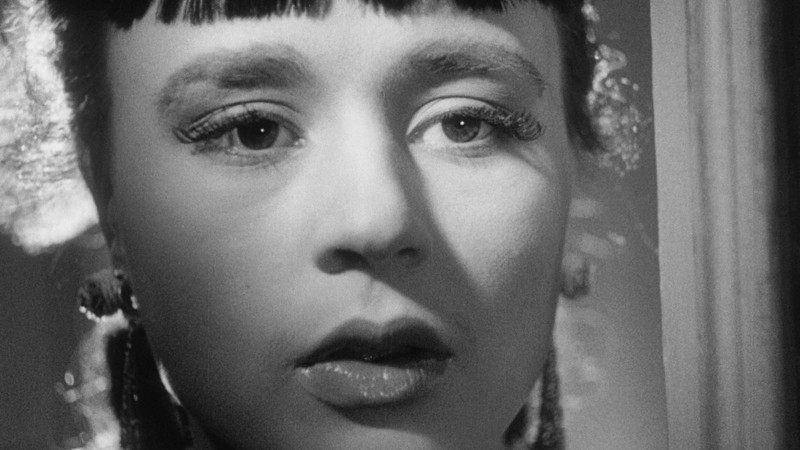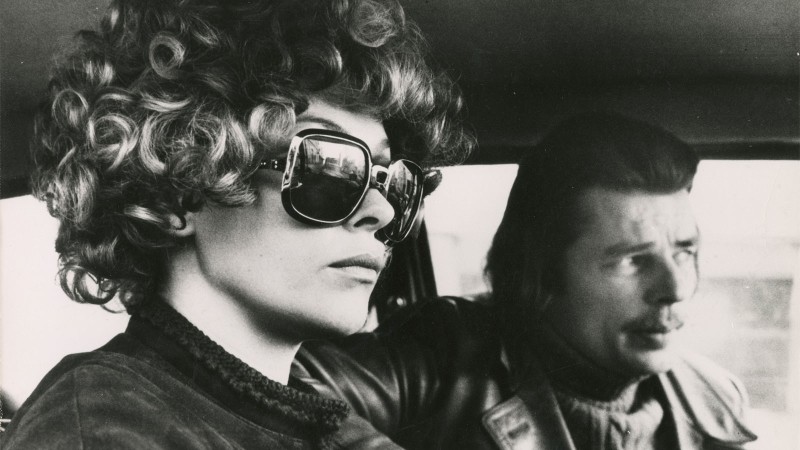Personal Choices

Audrey Diwan, who won the Golden Lion in Venice for her wrenching abortion drama Happening (2021), will open San Sebastián this evening with Emmanuelle, starring Noémie Merlant. Diwan tells Variety’s Ben Croll that when she was approached to direct a fresh adaptation of Emmanuelle Arsan’s 1967 erotic novel, “I said to myself, if I can depict pain, maybe I could do the same for pleasure.” Running through September 28, San Sebastián’s seventy-second edition will see presentations of Donostia Awards to Pedro Almodóvar, Cate Blanchett, and Javier Bardem as well as the international premiere of Kiyoshi Kurosawa’s Serpent’s Path and screenings of new films by Mike Leigh, Costa-Gavras, François Ozon, and Gia Coppola.
- “I suppose the cinema I create is trying to look like TV,” says Todd Solondz when Chris Broughton asks him for the Guardian about making Happiness (1998). “When you’re dealing with such troubling subject matter, it provides a security blanket.” As Elena Saavedra Buckley begins profiling Solondz for the New Yorker, he’s preparing to shoot his next feature, Love Child, with Elizabeth Olsen and Charles Melton. By the end, the project has fallen apart. “His movies are built around yearning characters who follow their urges into oblivion,” writes Buckley. “They are untalented, depressed, or relentlessly rejected, and they tend to hopelessly seek love or artistic recognition in hollowed-out big-box towns. They’re least understood by their own families, if they have them at all, and they often inflict the cruelty they experience onto others. The comedy comes from the fact that much of this occurs in plain sight. ‘For me, all writing in fictional terms is an expression of desire. That’s the motor,’ Solondz told me, of both his characters’ striving and his own. ‘And I think all my movies are love stories.’”
- GQ’s Raymond Ang is hardly alone in missing Maggie Cheung ever since she declared that she was “fulfilled as an actress” and stepped away from the industry twenty years ago. Ang talks with Greta Lee, who explains how she drew inspiration from Cheung for her performance in last year’s Past Lives. Olivier Assayas, who directed Cheung in Irma Vep (1996) and Clean (2004), says that Cheung “was part of what was changing in filmmaking at that time. I think that things don’t change in filmmaking if you don’t have the right actors, and Maggie was instrumental in a movement that transformed world cinema.” Everyone Ang speaks with respects her decision to pursue her music and painting, but again, she’s missed. “There’s a certain kind of alchemy that happens between a certain kind of actor and the camera,” says Dennis Lim, artistic director of the New York Film Festival. “And I think that is so true for Maggie . . . She’s one of the great screen actors of all time.”
- With his latest seasonal collection of brief but incisive reviews for n+1, A. S. Hamrah gives a proper send-off to the summer of 2024. Shawn Levy’s Deadpool & Wolverine is “a business manual for boys, illustrated with cartoon violence.” Víctor Erice’s Close Your Eyes “comes across as work done in frustration, not recollected in tranquility,” while Alice Rohrwacher’s La chimera is “pretty casual about its brilliance and originality.” While “making the best use of a New England setting since Michael Roemer’s Vengeance Is Mine in 1984,” Annie Baker’s Janet Planet is “also the best evocation of the early 1990s since [Lev Kalman and Whitney Horn’s] 2014 movie L for Leisure, another lost classic.” And Zach Clark’s The Becomers is “the first original, insightful film about COVID and the COVID years.” For Hamrah, there is “no reason Clark isn’t the next Jonathan Demme, besides a general, society-wide incompetence that can always find the money for anything as long as it isn’t good.”
- Previewing Personal Belongings: First-Person Documentary in the 1990s, the series opening today at the Museum of the Moving Image in New York, Dan Schindel focuses at Hyperallergic on work by Sadie Benning, Tom Joslin and Peter Friedman, and Marlon Riggs, and David Schwartz has an overview of the series as well. At Reverse Shot, programmers Asha Phelps and Jeff Reichert talk to their uncle, Steven Bognar, who codirected the Oscar–winning American Factory (2019) with his late partner, Julia Reichert, about the film that gives the series its title. Recently restored, Personal Belongings (1996) focuses on Bognar’s father, a Hungarian émigré who visits his homeland during the waning days of the Cold War. “Everything in documentary filmmaking is an ethical question,” says Bognar. “Every placement of the camera. Every question you ask or don’t ask is an ethical choice. But the hardest choices are made in the cutting room because that’s when you really are saying, this will be seen by the world.”
- In her review for the New York Times, Beatrice Loayza calls Eureka “an intriguingly languorous, visually audacious drama . . . about the existential plight of modern-day Indigenous Americans.” It’s one of three films by Lisandro Alonso screening over the next week at New York’s Metrograph. “I first approach my main idea,” Alonso tells Ethan Vestby at the Film Stage, “and then I start to observe a lot; I change details, characters, situations, locations, rhythms, seasons.” Talking to Andrew Reichel at In Review Online, Alonso says that the first section of Eureka draws from his reading of Cormac McCarthy’s Blood Meridian, which takes place in “a kind of non-frontier land where everyone kills everyone and they are looking for no order in the end, and I don’t think it’s too far away from that nowadays, even if there’s four hundred years in between. I don’t think anything really changed in this place that we call . . . whatever you want to call it.”



